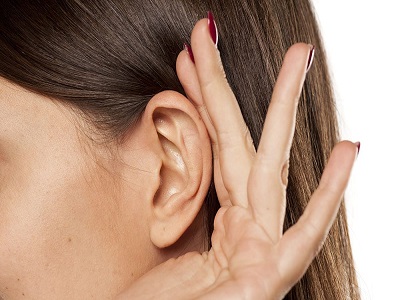Temporary hearing loss can be frightening and can be caused by a variety of factors. It can affect everybody and everyone, thus it's important to understand how to deal with such loss for the first time. It is most common in those who are exposed to loud noises or sounds, but there are other reasons you may not have considered. Here's how to treat temporary hearing loss for future reference or if you're experiencing it right now.
What causes temporary hearing loss?
Many people equate hearing loss with loudness, but this is not always the case. Yes, exposure to excessive noise or loud sounds is a common cause of temporary hearing loss; however, there are numerous other causes.
A sort of impediment, most commonly earwax, could be to blame. An accumulation of earwax might gradually impair your ability to hear. It is crucial to understand that some drugs can cause temporary hearing loss as a side effect. Any type of head trauma, as well as ear infections, might cause you to lose your hearing.
What is the best way to treat a temporary hearing loss in one ear?
There are many approaches to treating temporary hearing loss depending on what caused it. When you have temporary hearing loss in one ear, you should treat it yourself in the comfort of your own home. Here are a few treatment options based on how it occurred in the first place.
Being subjected to loud noises
If you've been to a rock concert or work in a noisy setting, these are common situations that can result in temporary hearing loss. Our ear hairs are extremely tiny and delicate, and once damaged, they are permanently ruined.
This form of exposure, where your hearing has suffered some damage, is likely to recover in the short term. However, there are times when it causes long-term damage to the hair cells. If your hearing does not improve within a day or two, you should seek medical attention right once.
You can take preventative precautions if you are ever exposed to loud music again. This can include using earplugs or other ear protection. It might help to provide the protective barrier that your ears require to avoid further damage. That one event could permanently harm your hearing, so don't take any chances when it comes to protecting it.
Ear canal obstructions
Earwax is the most common cause of blocked ear canals, although other foreign things can also get lodged in there. If your hearing loss is caused by a blockage, you should have it removed as soon as possible. There are specialists who can assist with securely removing earwax, but it should be something that falls out naturally.
Of course, if it's causing you any discomfort, it's always preferable to get it done by a professional audiologist. You should never try to remove it yourself because a professional will have all of the necessary equipment to do it without injuring your eardrum.
Infections of the ears
Ear infections are unpleasant to have, and they can be extremely painful. The majority of ear infection-induced inflammation resolves rapidly and returns to normal. However, if you are in a lot of discomforts, or if it is accompanied by a fever or a severe headache, you should seek medical attention as soon as possible.
Swimmer's ear is another condition that can induce ear obstruction. This is where water lingers in your ear after swimming. Seek medical attention if it does not return to normal on its own. Scratching your inner ear with your fingernail or a cotton cue tip can also result in scratches and abrasions.
Temporary hearing loss symptoms
Temporary hearing loss symptoms can vary, but individuals who have had it before frequently describe a muted sound. Any difficulty hearing background noise or hearing a discussion is another cause for concern. You may also have ringing in your ears and dizziness.
Getting the care and support you need for temporary hearing loss is critical, so contact The NHDC Hearing Speech and Diagnostic for more information

